Since the start of the first programme, EDCTP has invested in support for individual African researchers throughout their entire career trajectory. A set of graduate and post-doctoral fellowship opportunities was developed, from early career preparatory fellowships to senior fellowships which support clinical research team building and mentorship.

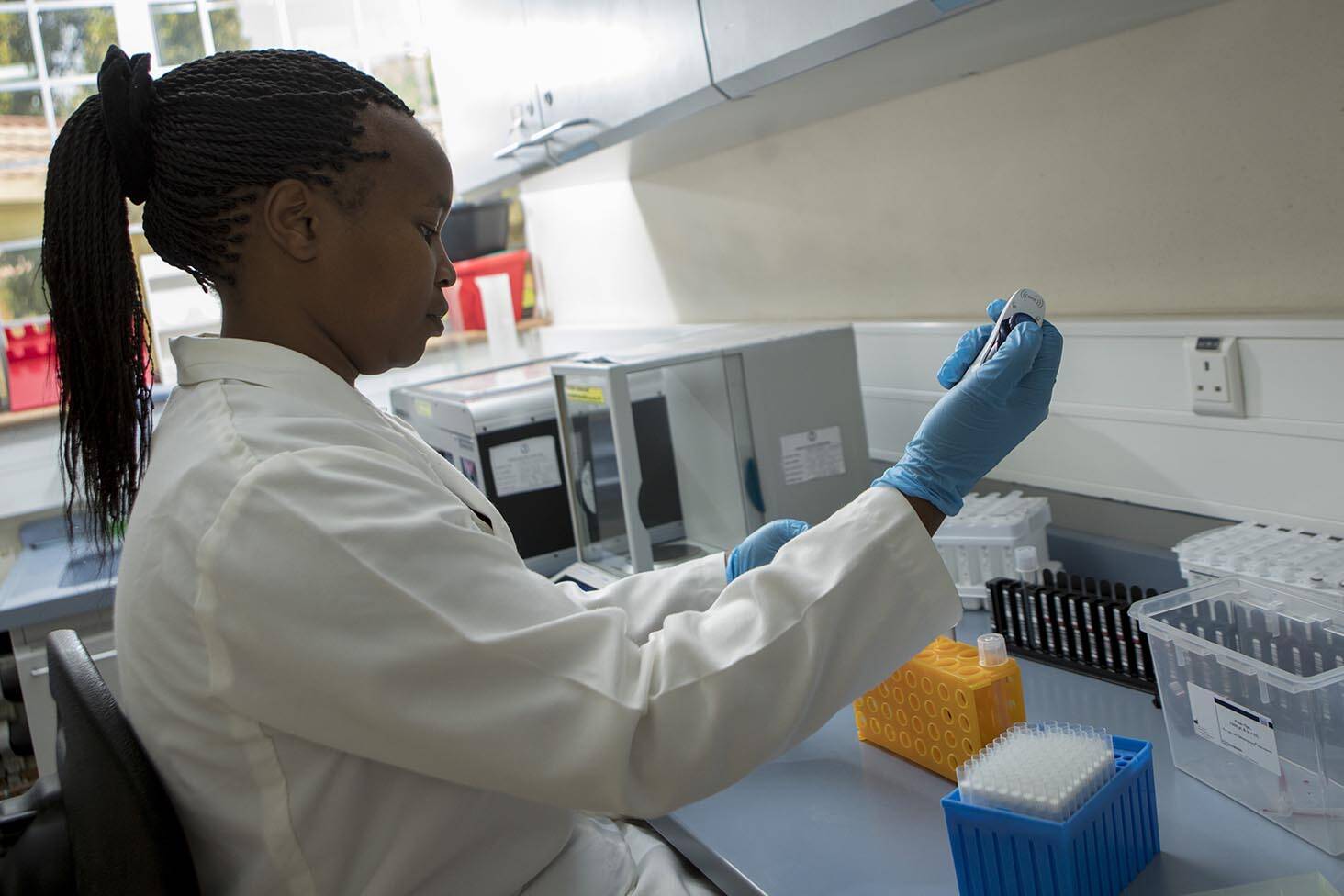
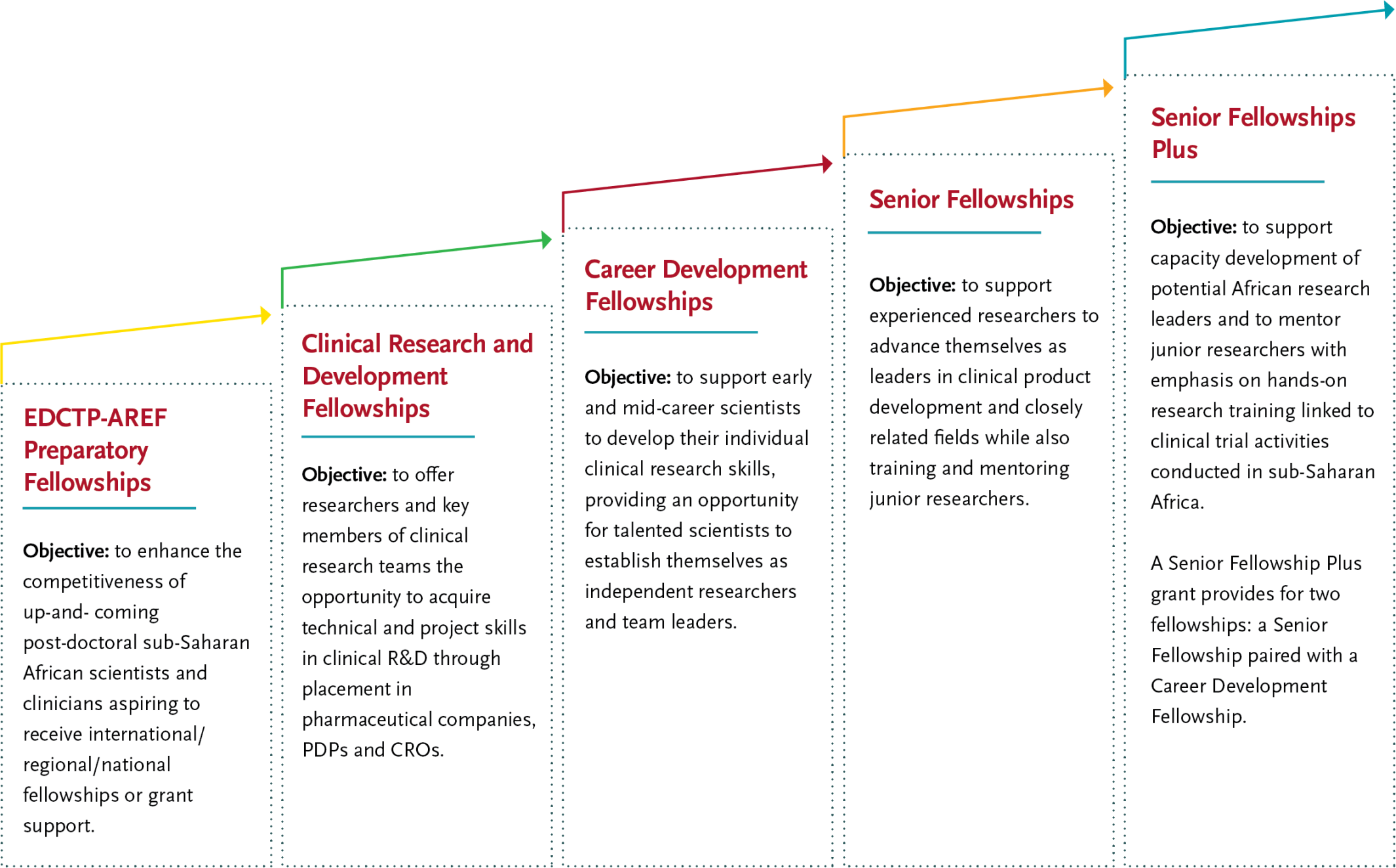
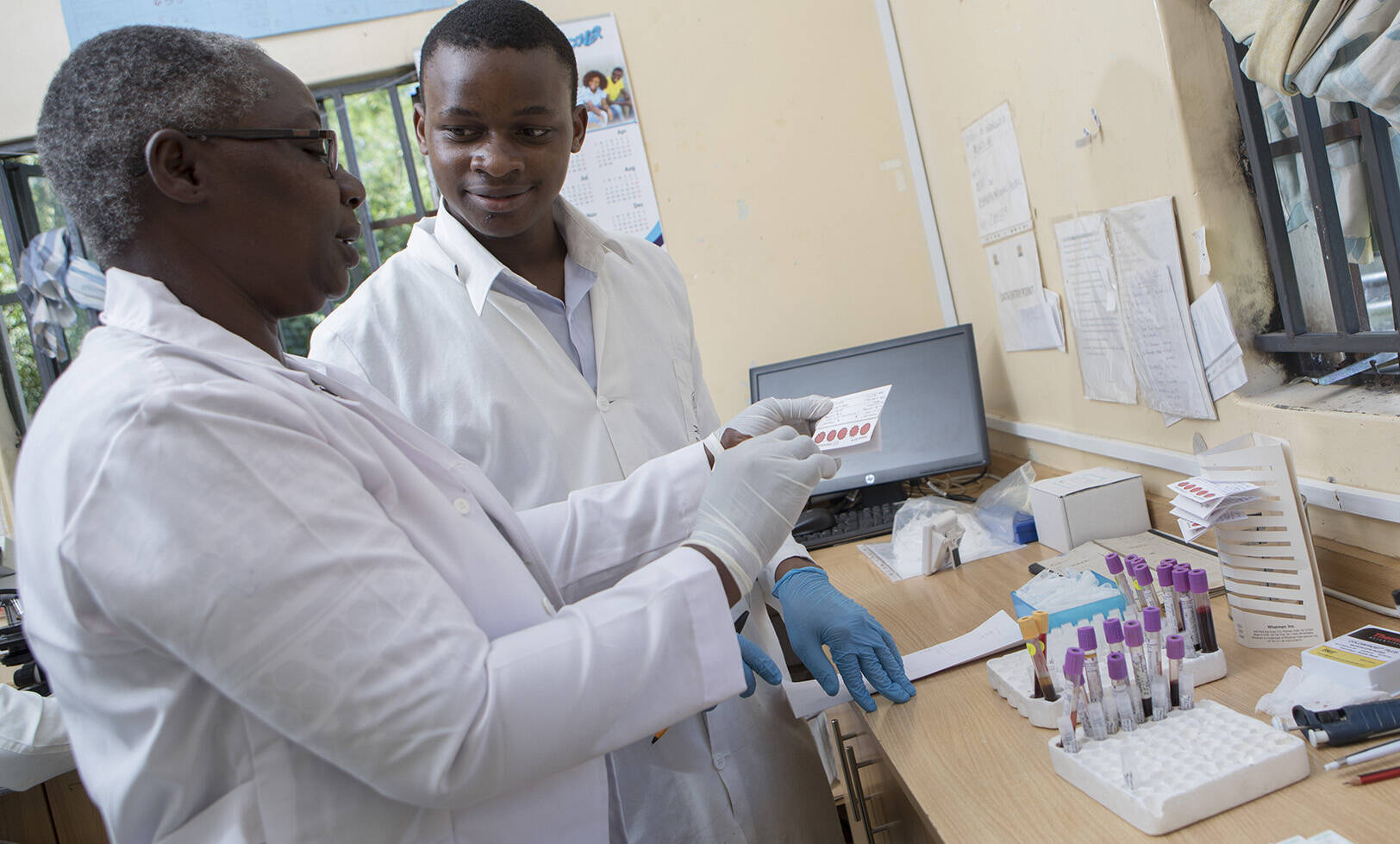
Since the start of the first programme, EDCTP has invested in support for individual African researchers throughout their entire career trajectory. A set of graduate and post-doctoral fellowship opportunities was developed, from early career preparatory fellowships to senior fellowships which support clinical research team building and mentorship.
scroll down

At the second level are the Clinical Research and Product Development Fellowships which until recently were jointly implemented with WHO-TDR. They provide researchers with on-the-job training and experience within pharmaceutical companies or partner organisations which are involved in regulatory clinical trials such as Product Development Partnerships (PDPs), followed by a period of reintegration in their home institution in sub-Saharan Africa. These fellowships provide upcoming scientists with experience of implementing clinical trials and research product development. The hands-on training is a vital requirement to enable them to align their work with the research strategies of their home institutions. Reintegration back into their home institution is mandatory to ensure skills transfer on an individual and institutional level. The Clinical Research and Product Development Fellowship helped Dr Solomon Mequanente Abay (Ethiopia) to broaden his knowledge of clinical trial operations, ethics review and regulatory aspects at the Novartis Institute of Biomedical Research. Dr Abay was subsequently awarded an EDCTP Career Development Fellowship in 2019 to conduct a study that aims to contribute to optimising praziquantel therapy for Schistosoma mansoni infection in preschool-age children.
Sometimes such a fellowship can be nested in a large research project. Dr Banda’s fellowship project, IMPROVE DDI, was part of the EDCTP-funded IMPROVE-1 and -2 studies, which are exploring the use of dihydroartemisinin–piperaquine (DP) to prevent malaria infections in pregnant women with or without HIV infections, respectively. His studies, completed in September 2021, aimed to examine whether co-administration of DP and dolutegravir-based antiretroviral therapy affects bloodstream levels of either drug.
Dr Banda was recently awarded with Wellcome-NIHR International Training Fellowship for a study to optimise use of the antimalarial DP for malaria prevention and treatment in infants, who are often a neglected subpopulation in clinical trials.
Dr Marieke van der Zalm (South Africa) started her Senior Fellowship Plus in 2021. Prior to that, she held an EDCTP Career Development Fellowship, which helped her to establish herself as a leading figure in the field of the long-term impacts of childhood lung infection. She was also invited to join the South African TB Think Tank, an advisory body to the South African National Department of Health, and has also carried out important work on children hospitalised following COVID-19 infection.
As well as developing her own skills, the Senior Fellowship Plus supports Dr van der Zalm as mentor for an early-career researcher in Mozambique – Dr Justina Bramugy, a clinical scientist at the Centro de Investigação em Saúde de Manhiça (CISM). With support from Dr van der Zalm, Dr Bramugy will be leading her own related study on the impact of pulmonary TB and viral infections on lung health in young Mozambican children, drawing on a cohort of children with presumptive TB enrolled in the EDCTP-funded Stool4TB project. The project will help to develop Dr Bramugy’s research skills, as well as the research capacity of CISM more generally.
The fourth level is the prestigious Senior Fellowships which provide opportunities for leading researchers to consolidate and develop their research and leadership skills while also contributing to the development of the next generation of researchers as supervisors and mentors. Dr Catherine Orrell is an EDCTP fellow working on improving adherence to antiretroviral therapy. During the COVID-19 pandemic, the unit Orrell leads at Groote Schuur Hospital, Cape Town South Africa, has taken on the COVPN5001 and HVTN 405 – two NIH-funded network studies exploring immune response of people with early COVID-19 or just recovering from COVID-19 for vaccine preparatory purposes. In addition, they are a site for the CROWN Coronation study, exploring MMR vaccination in COVID-19 prevention. Dr Catherine Orrell was awarded an EDCTP Senior Fellowship Plus grant in 2021.
The Senior Fellowship Plus scheme was developed as a new mechanism to address the fragmented research landscape in Africa, supporting leading researchers to partner with junior or mid-career fellows in less-research active countries and to build research collaborations across sub-Saharan Africa. Dr Orrell is collaborating with Dr Olaposi Olatoregun at APIN Public Health Initiatives, Nigeria.
At the third level, Career Development Fellowships support early and mid-career scientists with up to five years of research experience to develop their individual clinical research skills, providing an opportunity for talented scientists to establish themselves as independent researchers and team leaders. During his EDCTP Career Development Fellowship, Dr Clifford George Banda (Malawi) helped to develop the WWARN Malaria Clinical Trials Toolkit and used it in his research on drug–drug interactions between antimalarials and antiretrovirals.
The first level fellowship, Preparatory Fellowships, is offered in partnership with the Africa Research Excellence Fund (AREF). It aims to hone the skills needed to compete for research grants. These grants also teach young scientists to think broadly about global health problems at a very early stage of training. For example, one of the Preparatory Fellows, Dr Edith Majonga (Zimbabwe), studied cardiovascular disease epidemiology in adolescents with perinatal HIV to reduce cardiovascular disease morbidity and mortality. After the completion of her fellowship, Dr Majonga was successful in her application for an EDCTP Career Development Fellowship.
Partnering to build human capacity in Africa
Recent epidemics have exposed the need to train young African researchers to respond with relevant clinical research for developing interventions that are linked to national disease control programmes. EDCTP aims to address niche areas where there is a capacity gap. In 2021, EDCTP and Africa Centres for Disease Control and Prevention partnered in a €7.5 million initiative to support institutions in Africa and Europe to train a cadre of public health workforce that will boost epidemiological and biostatistical capacity on the African continent through Master’s degree programmes in epidemiology and biostatistics. This joint initiative supports ten training consortia that will train 150 researchers from across sub-Saharan Africa. Additionally, EDCTP has supported four grants addressing gender and diversity gaps in clinical research capacity at the EDCTP Regional Networks. Each network has recruited five to eight female PhD candidates who are trained within the networks. This activity is supported by the UK Department of Health and Social Care (DHSC).
EDCTP is committed to working with like-minded partners from the public and private sector, to align activities and to leverage additional funding for research into poverty-related infectious diseases.
In response to the growing challenge of non-communicable diseases (NCDs) and their interaction with infectious diseases in Africa, GlaxoSmithKline and EDCTP launched in 2017 a joint call for proposals for Senior Fellowships in the area of co-morbidities of NCDs and poverty-related infectious diseases. In 2019, it established a new partnership with Novartis and Fondation Botnar, which provided €750,000 to support five Career Development Fellowships. The fellowships support research on the interplay between poverty-related infectious diseases and non-communicable diseases in women and children.
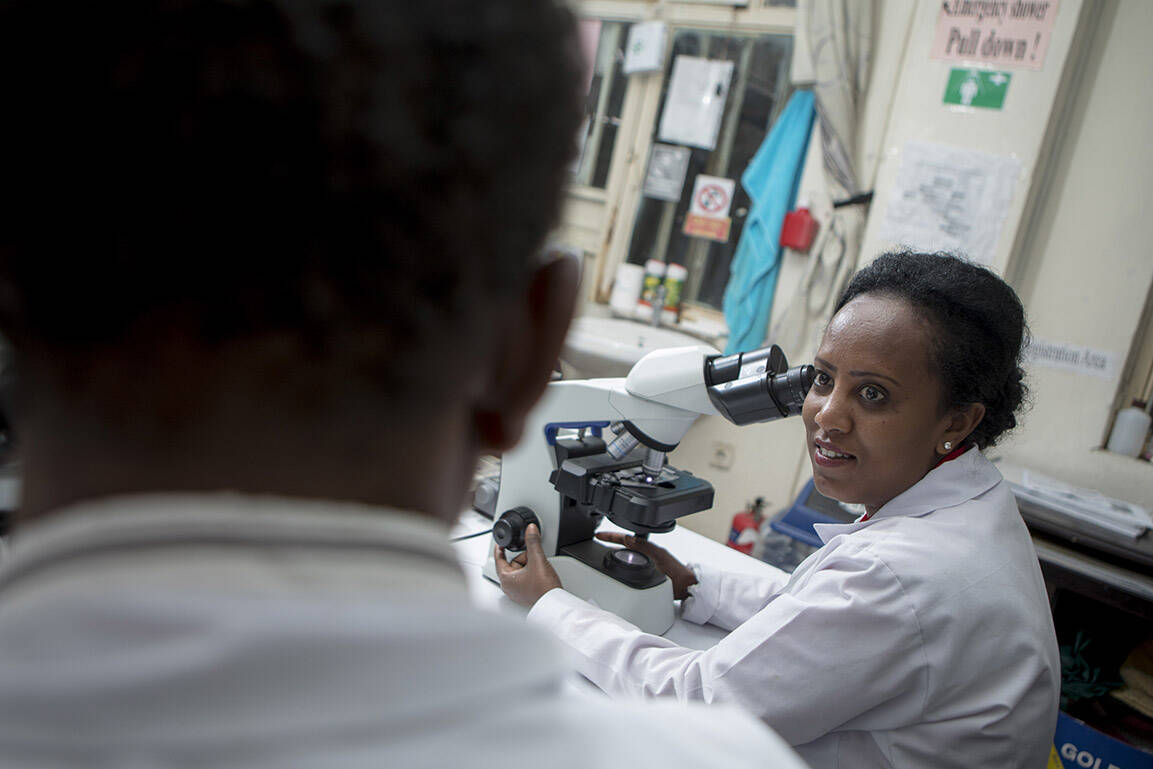
scroll down
Since the start of the first programme, EDCTP has invested in support for individual African researchers throughout their entire career trajectory. A set of graduate and post-doctoral fellowship opportunities was developed, from early career preparatory fellowships to senior fellowships which support clinical research team building and mentorship.
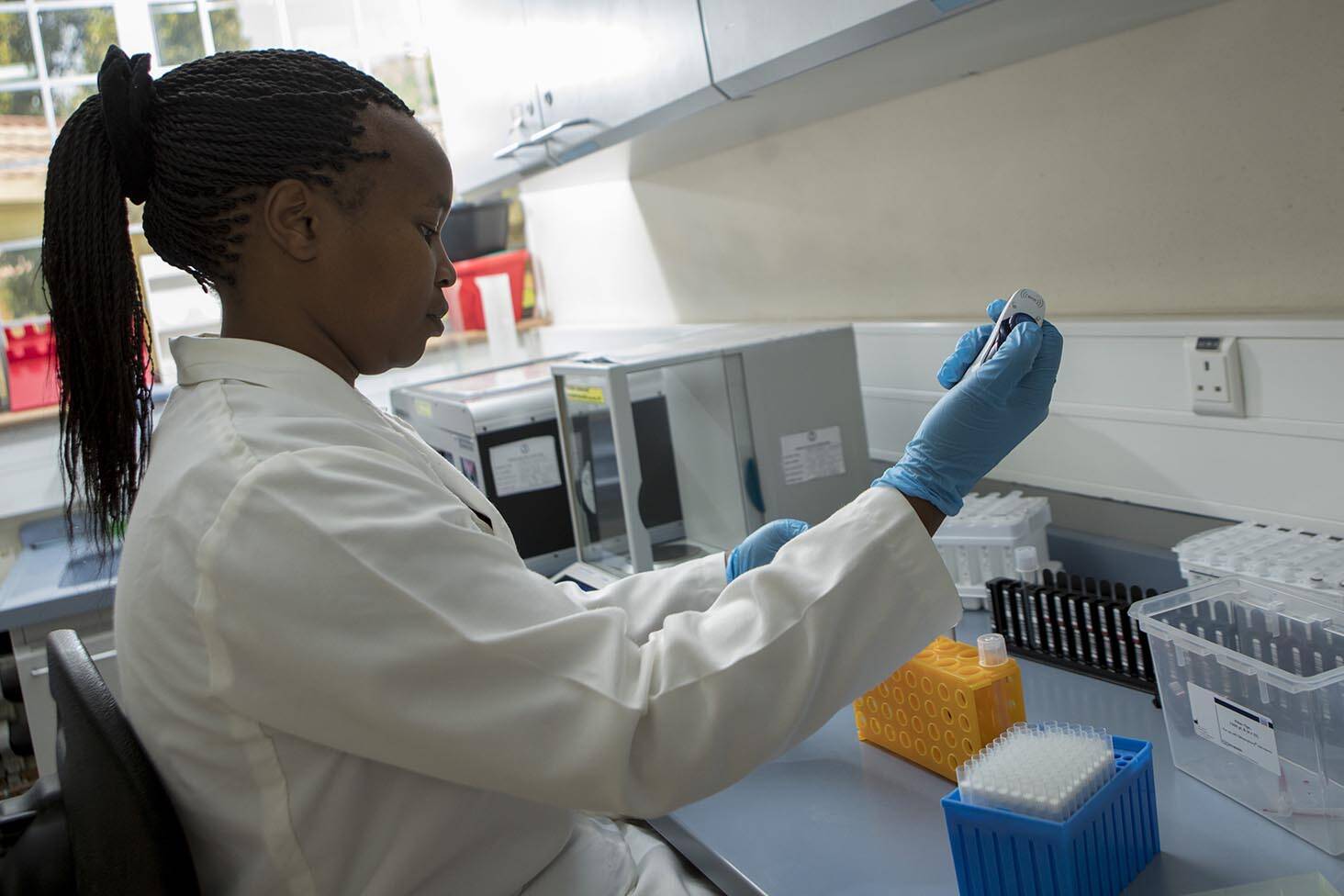
Next steps to further community engagement
To consolidate its work in community engagement, EDCTP has created a working group involving experts from the General Assembly and the Scientific Advisory Committee. Currently, the working group is reviewing EDCTP-funded research through the lens of community engagement. It will develop recommendations to strengthen EDCTP’s strategy in this area, taking into consideration the orientation of the future third EDCTP programme, i.e. its expected increased focus on late-stage product development, vulnerable populations and emerging and re-emerging infections.

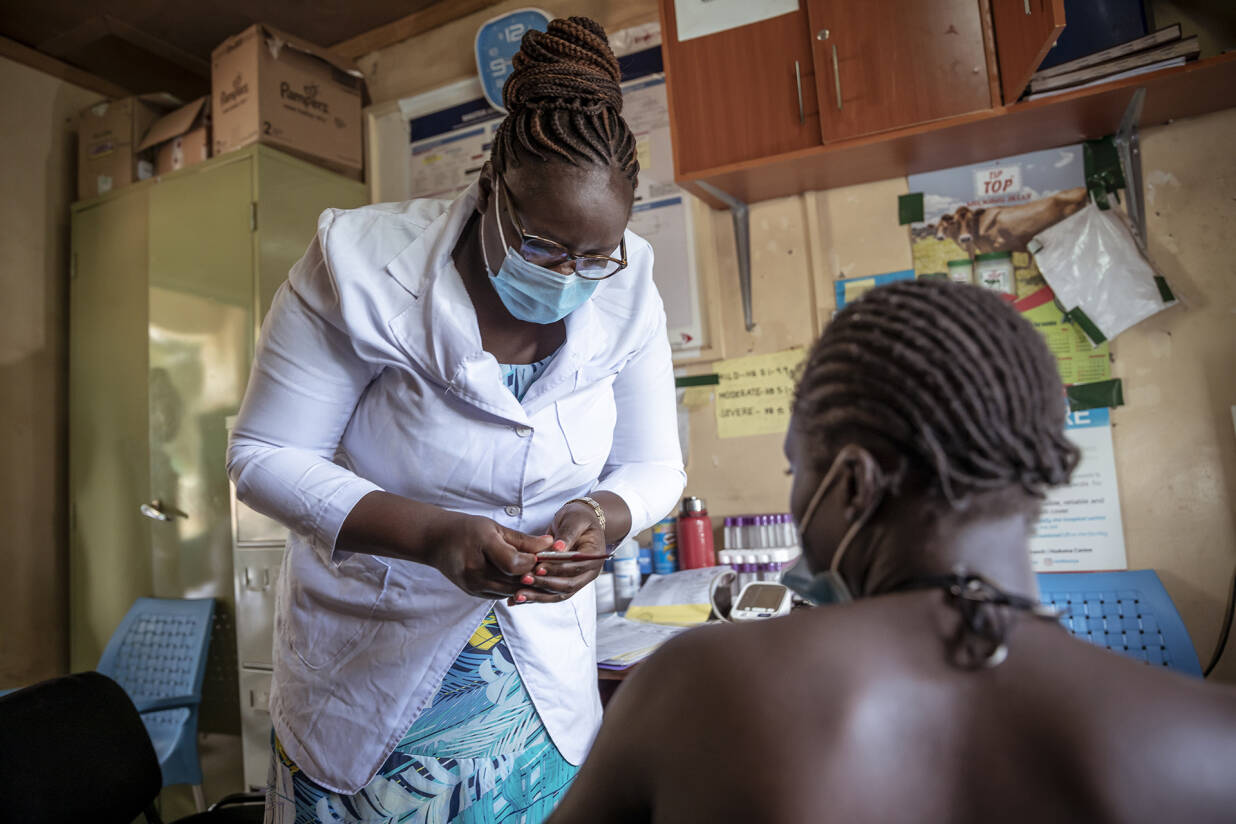
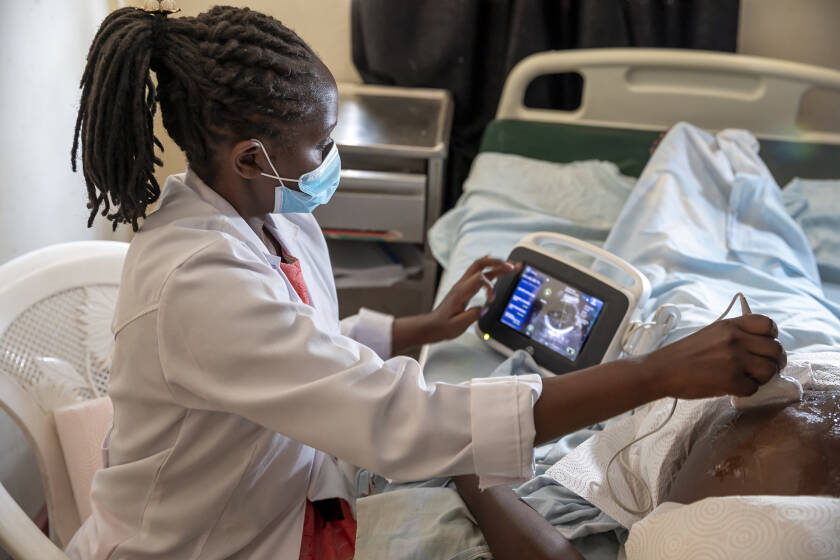
Community engagement and ethics review
The EDCTP-funded projects to develop capacities for ethics review and regulatory capacities usually conduct an information meeting with stakeholders including the community. The aim of these meetings is to inform community members on research ethics and the regulatory approval process.
The HATUA-KENYA project ‘Enabling compliance and building capacity and community for clinical research in Kenya’ illustrates such engagement. In collaboration with the Bioethics Society of Kenya, it organised several workshops and events to support sharing of experiences across institutions and discuss ethics issues. The project has held open online ‘bioethics cafes’. A conference on ‘Contemporary Issues in Bioethics’, in March 2020 in Nairobi, Kenya, covered topics such as community engagement, research involving minors, and ethical issues during pandemics.
EDCTP and the key role it plays
The Forum demonstrated the respect that EDCTP has won. The focus on meaningful partnerships and African leadership has been much praised. The partnership is now being referred to as a blueprint for new ‘EDCTP-like’ initiatives. The importance of the Forum itself has also become clear – it has grown since the first meeting in Rome at which fewer than 100 people were present.
The Forum was given some glimpses of the deliberations now under way that will determine the way in which the partnership’s next phase – the Global Health EDCTP3 Joint Undertaking – will be structured and how it will seek to address the many challenges facing the health of people across Africa.
Yes, there were some technical glitches, but thanks to the hard work from the secretariat and the organising and programme committees, the hybrid conference format worked. As Dr Michael Makanga (EDCTP Executive Director) observed, mid-pandemic it is actually a very appropriate time to hold a Forum!
Partnering to build human capacity in Africa
- the inequity in global COVID-19 vaccination rates is striking
- more research is now taking place on the infections responsible for much of Africa’s disease burden but we must work towards achieving equitable access to the products which result from this research
- it is not just a matter of supplying medicines; sound health systems are required that address such neglected matters as pharmacovigilance
- neglected diseases affect mostly the very poorest people; they also must be reached with new products and services
- women’s health conditions (such as female genital schistosomiasis) receive insufficient attention
- Africans should have access to all new technologies still under development, including the most advanced such as personalised medicine
- African scientists face more barriers in their career progression than their colleagues in other regions
- we must increase the number of female scientists, for which we need a clear strategy
- equity can only be achieved if everyone wants to make it happen; a change in attitude/mind-set is what is most needed
- the example of other nations – such as China, India, South Korea – show us that Africa too can be a science powerhouse and reduce its burden of disease.
EDCTP is committed to working with like-minded partners from the public and private sector, to align activities and to leverage additional funding for research into poverty-related infectious diseases.
In response to the growing challenge of non-communicable diseases (NCDs) and their interaction with infectious diseases in Africa, GlaxoSmithKline and EDCTP launched in 2017 a joint call for proposals for Senior Fellowships in the area of co-morbidities of NCDs and poverty-related infectious diseases. In 2019, it established a new partnership with Novartis and Fondation Botnar, which provided €750,000 to support five Career Development Fellowships. The fellowships support research on the interplay between poverty-related infectious diseases and non-communicable diseases in women and children.
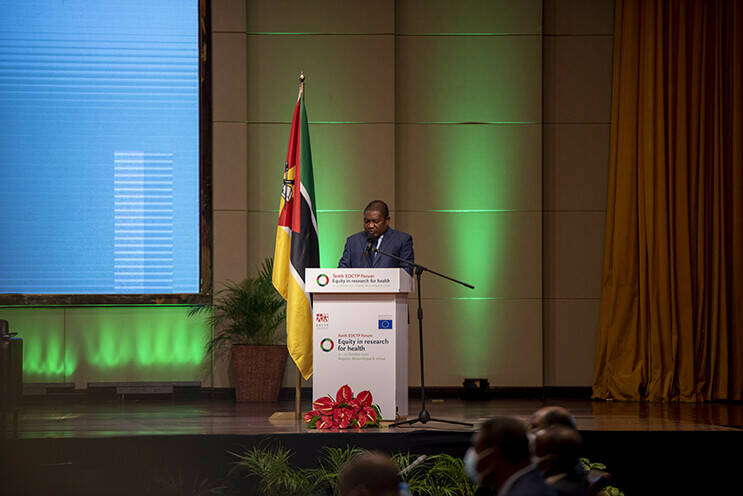
Our host nation: Mozambique
More than just providing a conference hall, Mozambique was responsible for many inputs to the Forum. The Local Organising Committee played an important role in the event. To have a Forum opened by a serving President – His Excellency Mr Filipe Jacinto Nyusi, President of the Republic of Mozambique – was both an honour and a tribute to what EDCTP has achieved. Mr Nyusi said that his presence could be taken as an indication of the commitment of his government to health research as a means of addressing poverty.
Forum participants were then welcomed by Dr Leonardo Simão, who is Chair of the Local Organising Committee as well as being EDCTP High Representative for Africa. Dr Simão spoke of the importance of health workers making decisions that were based on evidence. This is well recognised in Mozambique and has been stressed in training at the National Institute of Health (INS) and the Manhiça Health Research Centre (CISM). Also part of the welcome were singing and dancing and two short films about the country.
Mozambique’s Minister of Health Hon. Dr Armindo Tiago said that Mozambique had been a member of EDCTP since the second programme – EDCTP2. He stressed that EDCTP has shown itself to be an important force in developing new interventions. It has helped in the battle against AIDS, malaria, TB and also COVID-19.
COVID-19 and its impact on the work of EDCTP
The current pandemic was of course much discussed throughout the Forum. Many speakers said that this new threat to health has exposed many existing inequities, not just between regions and countries, but between men and women, and most importantly between those with higher and those with lower incomes. Presentations focusing particularly on COVID-19 included an account of Mozambique’s own vaccination programme (given by Dr Esperança Sevene), highlighting both the need to vaccinate pregnant and lactating women and the essential requirement of improved pharmacovigilance to detect and act on adverse events following vaccination. An overview of the challenges for Africa as a whole was also given by Dr John Nkengasong of Africa Centres for Disease Control and Prevention. One of the Forum’s symposia (sponsored by Deutsche Stiftung Weltbevoelkerung [DSW]) also looked at the impact of the pandemic, the role of partnership and the potential opportunities that might result from it. Several parallel sessions and oral poster presentations presented the results from projects that were supported by EDCTP’s COVID-19 research in sub-Saharan Africa emergency funding call.
It is ironic, given the inadequate supply of vaccine doses available to Africa, that acceptance rates amongst Africans offered COVID-19 vaccination are exceptionally high – much higher than in many countries in other regions where vaccines are readily available. In the meantime, COVID-19 has been responsible for delays and disruptions to health research and to the delivery of healthcare across Africa.
Governments, funding agencies and many institutions around the world have quite rightly made big changes to how they work in the light of the pandemic. Many speakers said the ‘architecture’ of health research is changing. This poses challenges for individual researchers and for organisations, including EDCTP. The full impact of COVID-19 is of course not yet clear and will not be until the pandemic resolves. On the positive side, the new recognition of the damage that can be caused by an infectious disease may result in more research funding and improved epidemic preparedness. But there have been wake-up calls before that were not heeded.
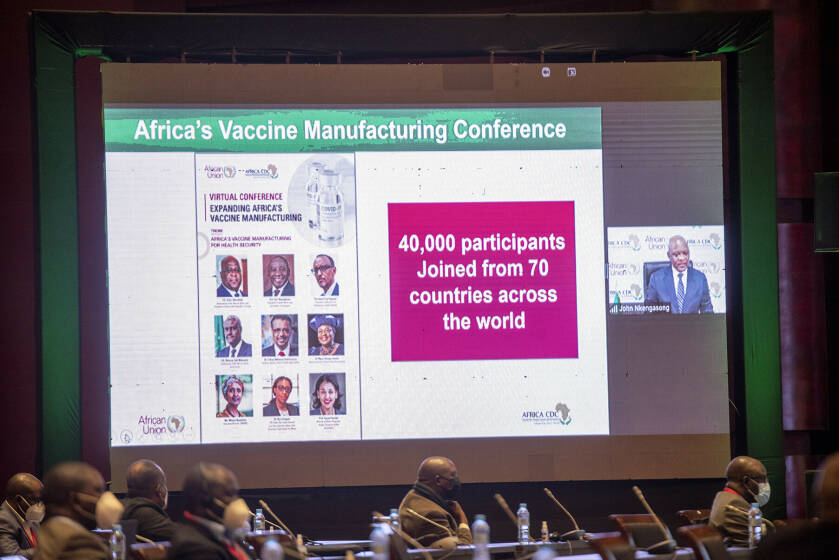
Therefore, EDCTP aims to ensure that effective community engagement is an integral part of the research and capacity development initiatives it funds. This should result in increased awareness and active involvement of community stakeholders in research activities and decision-making. Collaborative partnering with stakeholders is key to building transparent, meaningful, mutually beneficial, and sustained relationships. Respectful relationships addressing the interests of communities underpin scientifically rigorous and ethical trials. This will contribute to reliable and valid data that can inform prevention and treatment strategies for emerging pathogens[1] and poverty-related diseases.
Unfortunately, key populations that can most benefit from successful interventions, are often excluded from the clinical product development. EDCTP’s focus on these key populations requires good participatory practices for engagement from study inception right through to results dissemination.
